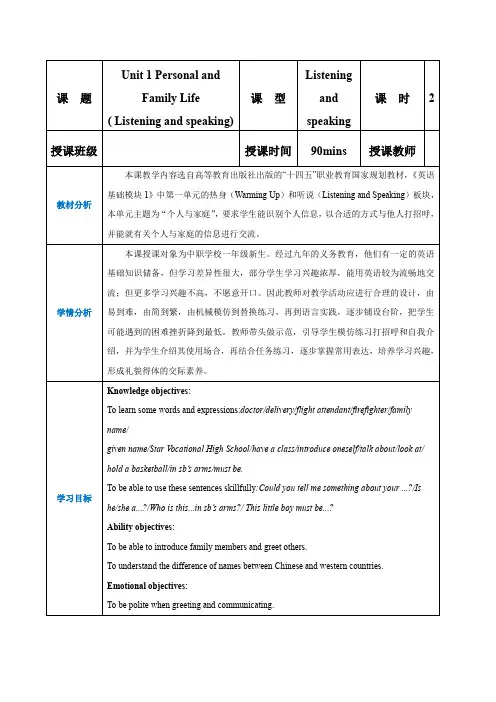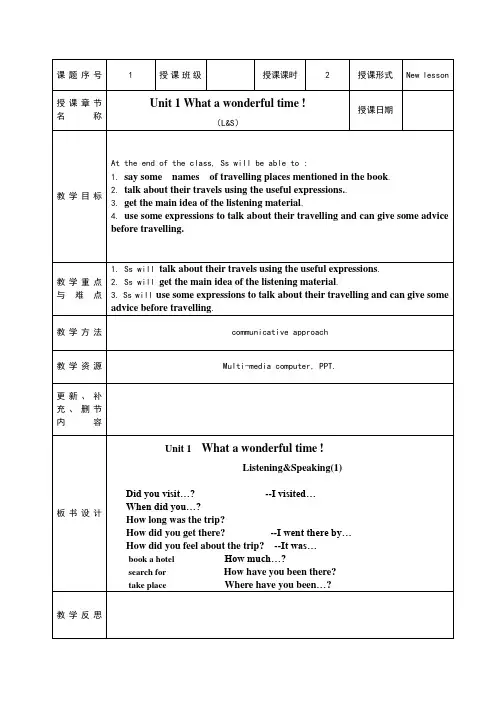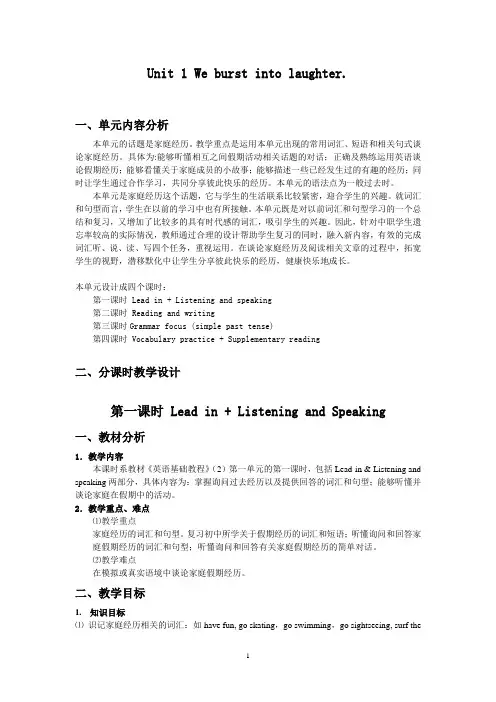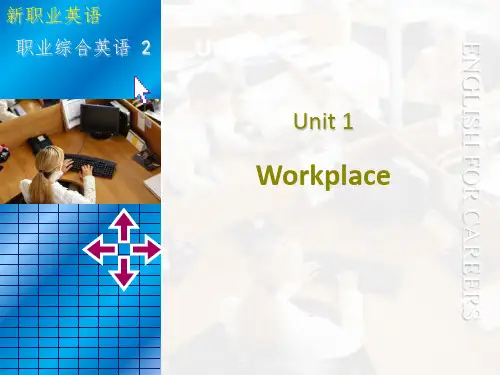unit1-1中职英语第二册课件
- 格式:ppt
- 大小:1.05 MB
- 文档页数:2

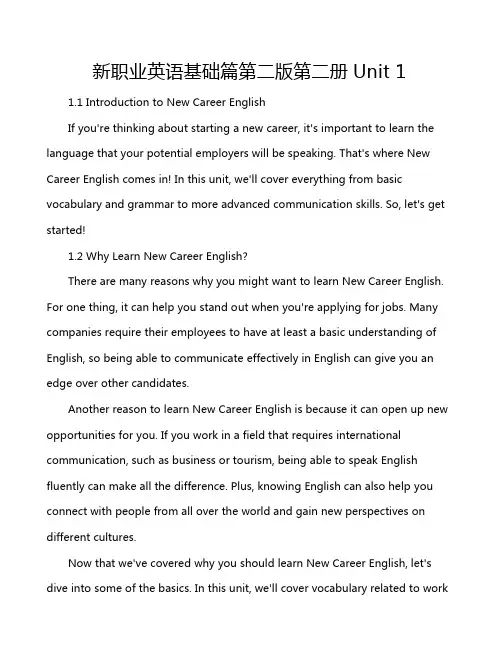
新职业英语基础篇第二版第二册Unit 11.1 Introduction to New Career EnglishIf you're thinking about starting a new career, it's important to learn the language that your potential employers will be speaking. That's where New Career English comes in! In this unit, we'll cover everything from basic vocabulary and grammar to more advanced communication skills. So, let's get started!1.2 Why Learn New Career English?There are many reasons why you might want to learn New Career English. For one thing, it can help you stand out when you're applying for jobs. Many companies require their employees to have at least a basic understanding of English, so being able to communicate effectively in English can give you an edge over other candidates.Another reason to learn New Career English is because it can open up new opportunities for you. If you work in a field that requires international communication, such as business or tourism, being able to speak English fluently can make all the difference. Plus, knowing English can also help you connect with people from all over the world and gain new perspectives on different cultures.Now that we've covered why you should learn New Career English, let's dive into some of the basics. In this unit, we'll cover vocabulary related to workand employment, as well as grammar and communication skills that will help you succeed in the workplace.1.3 Vocabulary Related to Work and EmploymentWhen it comes to talking about work and employment, there are a few key words and phrases that you should know. Here are a few examples: Job search: The process of looking for a job that fits your skills and qualifications.Interview: A meeting with a potential employer to discuss your qualifications and experience.Resume/CV: A document that outlines your education, work history, and other relevant information about yourself.Salary: The amount of money you receive for working at a particular job.Benefits: Extra perks or bonuses that come with a job, such as health insurance or paid time off.Workplace culture: The attitudes and behaviors that define the atmosphere at a particular company or organization.Performance review: A meeting with your manager to discuss your performance and set goals for improvement.Promotion: An increase in your position or responsibilities within a company or organization.Layoff: A decision by an employer to terminate the employment of a particular employee.Termination: The end of an employment relationship between an employer and an employee.Now that we've covered some of the vocabulary related to work and employment, let's move on to some grammar tips that will help you communicate effectively in English.1.4 Grammar Tips for Effective CommunicationGood grammar is essential for effective communication in any language, but it can be especially important when speaking English as a second language. Here are a few tips to help you improve your grammar skills:Practice, practice, practice! The more you speak and write in English, the better you'll become at using proper grammar.Pay attention to sentence structure. Make sure your sentences have a clear subject and verb, and use proper punctuation (such as commas and periods) to indicate where one idea ends and another begins.Use common verb tenses correctly. For example, if you're describing something that happened in the past, use the past tense; if you're describing something that is ongoing or future, use present or future tenses.Be aware of common errors, such as subject-verb agreement errors (e.g. "The team plays well" vs. "The team play well"), incorrect word usage (e.g. "I amgoing" vs. "I am going"), and run-on sentences (e.g. "I went to the store, I bought some milk").Finally, let's talk about some communication skills that will help you succeed in the workplace. These skills include things like listening actively, speaking confidently, and writing clearly and professionally. Here are a few tips to help you improve these skills:Listen actively: When someone is speaking to you, make sure you're paying attention and responding appropriately. Ask questions if you need clarification, and avoid interrupting them while they're speaking.Speak confidently: Don't be afraid to speak up and share your ideas with others. Practice speaking in front of a mirror or with friends who can offer feedback on your pronunciation and grammar.Write clearly and professionally: When writing emails or reports, make sure your writing is clear and easy to read. Use proper spelling and grammar, and avoid using slang or informal language unless appropriate for your workplace culture.。
